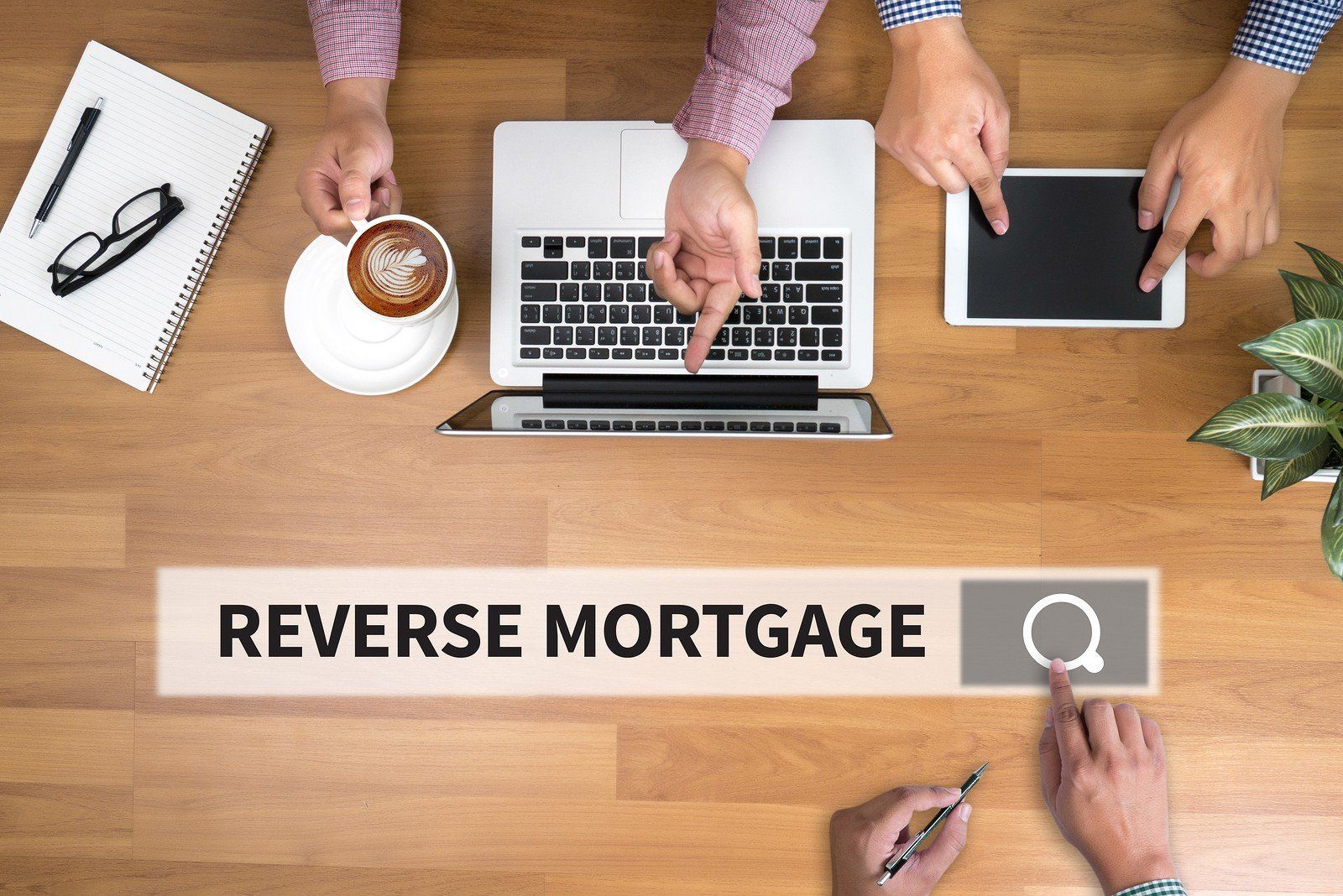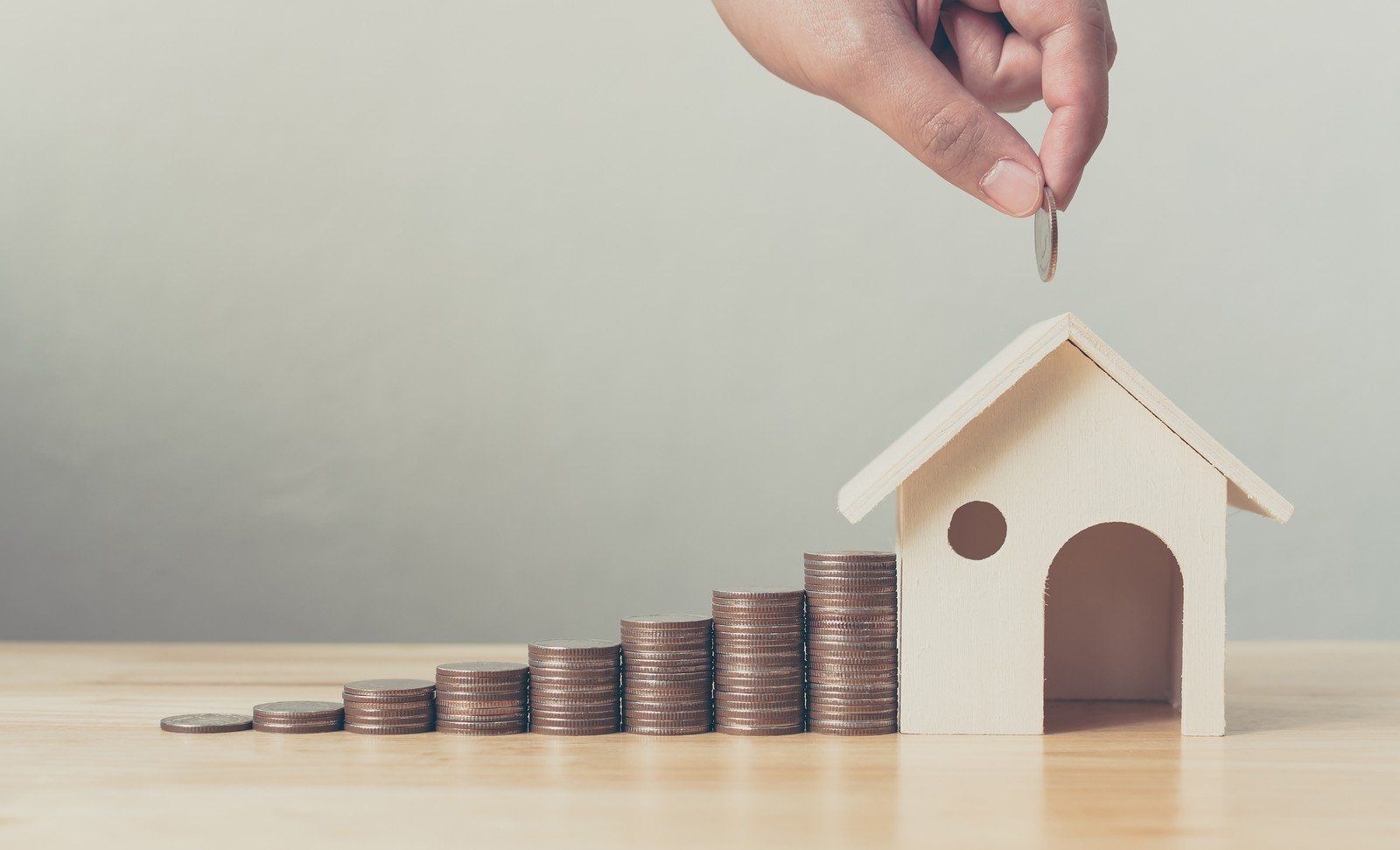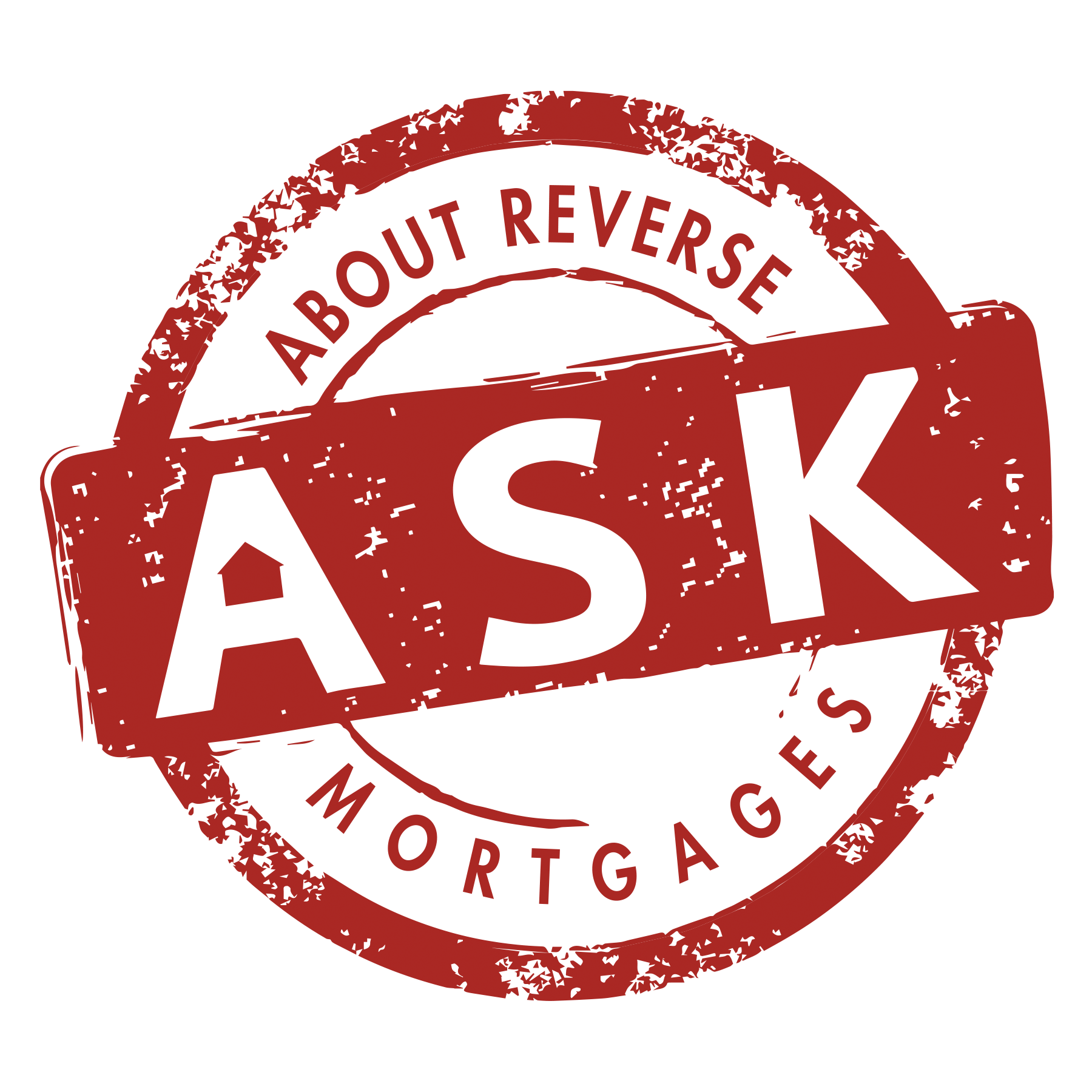Mortgage Articles

Recently I was delighted to be a guest on Vancouver’s #1 Real Estate podcast. I had a great time and wanted to share the conversation. Here's the link to check out the Real Estate Vancouver Podcast. Episode Summary: Learn all about reverse mortgages and the great generational wealth transfer happening in Vancouver. Should you get a HELOC or a reverse mortgage? Mortgage broker Marci Deane has the answer! What is the state of mortgage-free real estate in Metro Vancouver? How does that impact the generational wealth transfer we’ve been seeing in recent years? Adam & Matt : In 2006, the total value of mortgage-free real estate in Metro Vancouver was $123.8 billion. Half of that was owned by homeowners 55-74 years old. By 2021, that number tripled to $373.3 billion. And the amount owned by 55-74 years old was more than 55%. The big takeaway: Boomers are real estate rich in Metro Vancouver. We’ve been watching the generational wealth transfer over the last couple of years. Boomers want to help their kids get into the market. And for most, that help with a down payment is the only way for young adults to get into the market . One of the ways for people to tap into the wealth in their real estate is through a reverse mortgage, which Marci Deane is going to tell us all about.

If you’ve been thinking about buying a second property and you’re looking to put some of the pieces together, you’ve come to the right place! Whether you’re looking to buy a vacation property, start a rental portfolio, or help accommodate a family member, there are many reasons to buy a second property (while keeping your existing property), which might make sense for you! Now, while there are many great reasons to buy a second property, there is also a lot to know as you walk through the process. The key here is to have absolute clarity around your why. Ask yourself, why do you want to buy a second property? This isn’t a decision to be taken lightly or one that should be made too quickly. Buying a second property should be a strategic decision that allows you to accomplish your goals, and it should include an assessment of your overall financial health. So with clear goals in mind, the best place to start the process is to have a conversation with an independent mortgage professional. This will allow you to assess your financial situation, outline the costs, and put together a plan to make it happen. While purchasing a second property is similar to buying a primary residence, there are some key differences. Just because you’ve qualified in the past for your existing mortgage doesn’t mean you’ll qualify to purchase a second property. One key difference is the amount of downpayment you might be required to come up with. A property that is owner-occupied or occupied by a family member on a rent-free basis will require less of a downpayment than if the second property will be used to generate an income. So, depending on the property's intended use, you might have to come up with as much as 25%-35% down. This is where strategic planning comes in. Consider unlocking the equity in your existing home to finance the downpayment to purchase your second home. Here are a few ways you can go about doing that: Securing a new mortgage if you own your property clear title Refinancing your existing mortgage to access additional funds Securing a home equity line of credit (HELOC) Getting a second mortgage behind your existing first mortgage Securing a reverse mortgage The conversation about buying a second property should include assessing your overall financial health, leveraging your existing assets to lower your overall cost of borrowing, and figuring out the best way to accomplish your goals.

Negative equity occurs when your property is worth less than the outstanding balance on your mortgage. It’s not a very good place to be, especially if you’re planning for your retirement. Another term you might have heard is “being underwater” in your mortgage. The reality is, most Canadians have a significant amount of equity built up in their homes and this equity can be used to help plan through retirement. Dealing with a negative equity position is very uncommon, one of the only times the idea of negative equity even comes up is when discussing a reverse mortgage. Usually, the question is asked something like this: “If my home has depreciated in value at the time it is sold, and the mortgage balance is growing, will I (or my heirs) end up owing more than the house is worth?” And in the case of a reverse mortgage through the Home Equity Bank, the answer is no. No, assuming you meet all your mortgage obligations, the amount you will pay on your due date will never exceed the fair market value of your home. This is what they call their No Negative Equity Guarantee. As a reverse mortgage doesn’t have any payments required throughout the life of the mortgage, naturally, the outstanding balance grows with time. But as the Home Equity Bank has more restrictive initial qualifying guidelines than a standard mortgage, even though the balance is growing, it rarely grows beyond the value of the home. And if it does, Home Equity Bank covers the difference. Compare that with a standard mortgage, where if you wanted to access your home equity, you can potentially refinance up to 80% of the property value, or in the case you're downsizing, you can buy a new property with as little as 5% down. In this case, when the question is asked “is it possible to end up owing more than my property is worth” with a standard mortgage, the answer is yes. If the market takes a turn, you could find yourself in a negative equity position. Understanding your mortgage options through retirement is crucial to making the best choice for you. Each person’s financial situation is different and there is no one size fits all advice that can be provided on a blog. As a Lifestyle Mortgage expert, I specialize in helping older Canadians to understand their options, and provide counsel to help them make the best choice. If you have any questions at all, and would like to discuss your financial situation with me, please contact me directly anytime.

In this article, let’s separate fact from fiction. If you are considering a Reverse Mortgage, it is important you can make an informed and intelligent decision. Reverse Mortgages have been available in Canada for 25 years, but there are still many myths and misconceptions about them – some understandable and some are not accurate. What exactly is a Reverse Mortgage? A Reverse Mortgage is a loan available only to homeowners 55 or older. The amount you can borrow is based upon several factors including your age and the value of your home. What’s the difference between a Reverse Mortgage and a traditional loan? You are not required to make any payments on a Reverse Mortgage until you choose to move or sell your home. (However, you can make payments on the loan if you choose to do so.*) *Prepayment charges may apply. When you do decide to move or sell, the loan is repaid from the proceeds of the sale of the home. After the loan is repaid, all remaining money belongs to you and your estate. How much equity (money) will be left in my home after I repay the loan? On average, homeowners have well over 50% of the value of their home left to enjoy after repaying the loan. This money belongs to you. The exact amount will depend upon several factors, including: the amount of your loan, the value of your home, and the amount of time passed since you took out the loan. Can I be forced to sell my home and repay the loan? No. You always maintain complete ownership and control of your home at all times. You can never be forced to sell or move to repay the loan. All you have to do is keep your property in good maintenance, pay your property taxes and property insurance.. What happens if I or my spouse passes away before the loan is paid? The surviving spouse is under no obligation to make any payments until they move or sell the home. If you are the sole borrower, and you pass away, the loan is repaid when the estate sells the home. After the loan is repaid, all remaining money belongs to your estate and/or your heirs. What’s the difference between a Reverse Mortgage and a Home Equity Line of Credit? With an Equity Line of Credit, you must make regular payments on the loan. With a Reverse Mortgage, you are under no obligation to make payments on the loan until you move or sell. This makes Reverse Mortgages extremely appealing to people on a fixed income who cannot afford to make regular repayments. Another key difference is that you can be asked to repay your Line Of Credit at any time at the lender’s discretion. With a Reverse Mortgage, you cannot be forced to repay the loan until you decide to move or sell. What are the interest rates on a Reverse Mortgage? Interest rates on Reverse Mortgages mirror the rates charged on other home equity loans. They are usually somewhat higher than the rates charged for a Line of Credit because you are not required to make monthly payments or repay the loan until you move or sell your home. Who offers Reverse Mortgages in Canada? In Canada, Reverse Mortgages are offered directly to the public by HomEquity Bank, provider of CHIP Reverse Mortgage. The CHIP Reverse Mortgage is also available through all major Canadian banks, as well as credit unions, mortgage brokers and financial planning organizations. This article is the property of HomEquity Bank and has been published with permission.

Unlike our American neighbours, when Canadians explore the option of a reverse mortgage, there is only one provider, HomEquity Bank. In America, there are many companies who offer a reverse mortgage and as a consumer, on top of familiarizing yourself with the concept, you also have to research the best interest rates, read the fine print and compare them to a reverse mortgage provider that best caters to your situation. In Canada, it is much easier since, HomEquity Bank, is the only provider of Reverse Mortgages. However, Canadians are encouraged to familiarize themselves with the concept of a reverse mortgage and understand how the product works in order to determine if it is the best option for their financial situation. One way to do this is to get a free estimate of how much money you can get with a CHIP Reverse Mortgage. This estimate is based on your profile and home condition. You can also find out some of the frequently asked questions about reverse mortgages in Canada. To get you started in your understanding of a Reverse Mortgage in Canada, below is some basic information about the CHIP Reverse Mortgage. What is CHIP? CHIP is the name of HomEquity Banks’ reverse mortgage product. It is a loan secured against the value of your home. It allows you to unlock up to 55% of the value of your home without having to sell or move. The money you receive is tax-free and you can use it towards any of your personal needs such as: Pay off debts/Consolidate debt Home renovations and repairs Unexpected expenses (medical, emergency) Financially aid your children/grandchildren Improve or maintain your standard of living Pay for a vacation or a special purchase Who is eligible for CHIP in Canada? Canadian Homeowner (own your home) Your home is your primary residence Age 55 or older Why CHIP (benefits)? No Health Checks There are loans that require a health check to ensure that the recipient(s) (of the loan) are in good health to pay off the loan. With a reverse mortgage, since there are no regular monthly payments required until the homeowner(s) move, sell or pass away, health checks are not a requirement. Keep Your Home And Maintain Ownership Of Your Property Many people often ask whether the property title of the home gets transferred to the bank once the reverse mortgage is approved. The bank simply loans you a percentage of the value of your home in tax-free cash, but the title and ownership of the property remains yours. However, this means you must continue to pay your property taxes and maintain your home so that it remains in good condition. No Regular Monthly Payments Required The biggest advantage and feature of a reverse mortgage in Canada, is that you don’t have to make any regular monthly payments until you move, sell your home or pass away. Unlike a regular mortgage, where you have to maintain your monthly payments, a reverse mortgage lets you use the money as you please and gives you freedom from payments for as long as you live in the home. Once the homeowners move, sell the home or pass away however, the reverse mortgage including interest and principal is paid off from the home’s sale proceeds. The Money Borrowed Is Tax-Free And Does Not Affect Your OAS Or GIS Since the income you receive from a reverse mortgage is tax-free, it does not have any impact on your Old-Age Security (OAS), Guaranteed Income Supplement (GIS) or income from your Registered Retirement Savings Plan (RRSP) that you may be receiving. Choose How You Plan To Spend The Money One of the greatest benefits of a reverse mortgage is that you are in complete control of the loan and you are free to spend it on whatever needs you require it for. You Will Never Owe More Than The Value Of Your Home With a reverse mortgage you will be guaranteed that when you or your estate has to repay the loan, it will never exceed the fair market value of your home at the time it is sold. But keep in mind that your property must be kept in good maintenance and your property taxes and insurance have to be up to date and not in default. Relieve Financial Stress A reverse mortgage loan can help you consolidate your debt and clear your monthly payments so that you can live the rest of your life financially stress free! Enjoy Retirement A reverse mortgage loan will help you clear your financial burdens and allow you to enjoy your retirement. You worked hard your entire life, now is the time to enjoy the fruits of your labour. Take Control A reverse mortgage loan is essentially the money from your home equity. So take control of what you own and make it work toward your needs now! Reverse mortgages are definitely not for everyone, but they are a great option for many Canadian seniors who are looking for that extra financial security. To find out more about a CHIP reverse mortgage in Canada, Contact me to see if a Canadian reverse mortgage is a good option for your financial needs. This article is the property of HomEquity Bank and has been published with permission.

For Canadian seniors, there is a great way to get the most out of the equity in their home. Home prices tend to rise and equity builds in the property. Homeowners can use their equity by accessing various types of home equity loans like, home equity lines of credit (HELOCs), re-financing or second mortgages and reverse mortgages. Some of the factors that determine the type of home equity loan that should be accessed include: age, credit history, present earning capacity, nature of monetary requirement – short term or long term, existing mortgage on the property and health of the homeowner. Senior homeowners above the age of 55, with equity in their property can opt for a reverse mortgage. The terminology of Canadian reverse mortgages can frighten some into thinking that, should they engage in a Canadian reverse mortgage, they threaten any inheritance that might be left to their spouse or children. However, Canadian reverse mortgages are an excellent way to improve liquidity and help secure a future inheritance. Understanding Reverse Mortgages in Canada Simply put, a reverse mortgage is taking a loan on the equity in the home. A couple can take out a reverse mortgage loan on this equity and thus have money for expenses or other needs. This can be very useful for seniors since the income from a reverse mortgage does not have any impact on Old Age Security – OAS or Guaranteed Income Supplement – GIS benefits or income from their RRSP -Registered Retirement Savings Plan nor is the income taxable. In addition, there are no loan payments to be made for the duration of the loan and the occupants maintain the ownership of the property. The loan money can be dispensed in different ways, depending on desire or need. Loan money from a reverse mortgage can be received as a lump sum, or in subsequent installments. This gives a great deal of versatility to the money from the loan. In situations where there are two spouses party to the reverse mortgage, if one passes away, the other still can maintain residency and ownership of the home. Loan Maturation of Canadian Reverse Mortgages Understanding what a Canadian reverse mortgage is, is only part of the equation. Reverse mortgages mature when the homeowners no longer occupy the residence. This can be due to one or both parties passing away, selling the property or moving to an alternate residence. When these situations occur, the loan reaches maturity with all interest included and the loan is due. Many times, the loan provider will specify a time to settle the estate to ensure the heirs have time to arrange for funds to settle the reverse mortgage repayment, if they so wish. Normally, the estate is sold to retrieve the reverse mortgage principal and accrued interest. Funds remaining post settlement of the loan are turned over to the estate. Direct Benefit to the Heirs Unlike the neighbors to the south, Canadian reverse mortgages are highly regulated in terms of both the borrower and the loan originator/provider. A living spouse is allowed to continue to occupy the property for the duration of their life or until they are no longer able to occupy the property. They are not required to make payments nor service the loan in any way. Additionally, they cannot be forced to sell the home until they no longer occupy the property. As long as all necessary upkeep such as taxes are taken care of, there are no concerns with the Canadian reverse mortgage. Beneficiaries and or children who are entitled to the estate, are given the option to settle the reverse mortgage, or else the home is sold to satisfy the reverse mortgage loan. As mentioned previously, home prices tend to rise over time. Any monies left over from the sale of the home and, after the loan and interest are satisfied, are returned to the heirs. While various factors can affect the amount of money returned to the estate, the typical amount is 50 percent of the value of the home. Part of this is because the total amount of the loan is limited to a percentage of the equity secured as collateral. Protection For Both Seniors and Heirs From Financial Uncertainty One less obvious aspect to a Canadian reverse mortgage is the fact that it helps prevent, in some cases, financial insecurity brought on by a loved one passing away. In many cases, children of the property owners who engage in a reverse mortgage have homes and residences of their own. Those heirs who don’t possess their own properties, have an option of repaying the reverse mortgage and its accumulated interest and retaining the home. Alternately, they can use the remaining proceeds from the sale of the property to invest in a home of their own or handle any immediate financial needs. For seniors, a Canadian reverse mortgage is a way to supplement a fixed income, and provide security to their heirs. Many times loved ones and future beneficiaries approve of the use of a reverse mortgage. While the exact reasons may vary, the fact that the seniors have financial security and the heirs are considered and assured, help children understand the benefits of their parent undertaking a reverse mortgage. Canadian Reverse Mortgages are not for everyone and they are certainly not a solution for all financial problems. For those, who would benefit from a reverse mortgage however, they can make the difference between financial security and financial calamity. A CHIP Reverse Mortgage is great for giving seniors, who have equity in their home, the peace of mind that their financial well-being is assured and their children or beneficiaries are still taken care of. This article is the property of HomEquity Bank and has been published with permission.

Living well in retirement isn’t as easy as most people envision when they’re in their youth. Utilities, medical payments, prescriptions, insurance and just day-to-day living expenses often increase more rapidly than pensions, dividends and interest income. Even when you own your home, making ends meet at the end of the month can be a challenge for seniors. That’s where a reverse mortgage can help many Canadian seniors aged 55 and older. What Is A Reverse Mortgage? How does a reverse mortgage work? How can I qualify for a reverse mortgage? What is a reverse mortgage? These are just some of the questions that can arise while considering a reverse mortgage. A reverse mortgage is a financial product that allows Canadian seniors (age 55 and older) to tap into the equity that they’ve accumulated in their home. For many people, that equity is their largest single asset. Homeowners can access only up to 55 percent of their home equity as reverse mortgage, as long as they remain in that home. The exact amount a homeowner will receive depends on the property type, location, the home’s value, and the age of the applicant(s). To qualify for a reverse mortgage in Canada, homeowners must use the residence as their primary home, maintain the property is good standing, stay up to date with insurance, continue to pay property tax and pay off any outstanding debts secured with the home with the proceeds from the CHIP Reverse Mortgage. Unlike other mortgages and loans, there is no health check or minimum income required with a reverse mortgage. You will never be forced to sell or move as a result of changing home values or earning. The amount that you or your estate eventually has to repay will never exceed the fair market value of your home at the time it is sold. There’s no reason your home should ever be a burden to you or your family. The loan will be recalled only if the last homeowner passes away or moves out of the home. Using Reverse Mortgage Funds Wisely There are almost no conditions on how you use the proceeds of a reverse mortgage loan and homeowners are not required to make payment towards the interest or principal of the loan. This is often not the case with other types of loans or mortgages such as a Home Equity Line of Credit, or HELOC, that requires regular payments. Just a few of the smart ways how Canadian seniors can use reverse mortgage funds include: Make improvements to your home. Keeping up with your home’s maintenance is essential to having a safe and secure living environment. If you’ve had to put off things like replacing your roof or replacing your heating system, the funds from your reverse mortgage loans can help make these essential updates possible. Canadian seniors can also use their loan proceeds for other upgrades, such as adding a deck, replacing countertops and/or remodeling the kitchen. Pay down debt. High interest rates from credit cards can make it tough to ever get fully out of debt. You can get rid of some of your monthly bills by using your reverse mortgage funds to pay off those high credit card balances. Pay off medical bills. If a recent illness has wiped out your savings and left you with a pile of bills, a reverse mortgage can give you the funds to pay off all of those bills and allow you to sleep better at night. Pay for leisure activities. You can use your reverse mortgage to engage in leisure activities in retirement or enhance your lifestyle. This could include travel to various destinations – local or abroad or indulge in favorite hobbies, which may require monetary investment. If you choose to take out a reverse mortgage loan, you keep the deed to the property. You only have to give up ownership of the house if/when you move out or sell the property. You can stay as long as you stay current on your taxes, maintenance and insurance. There’s no maximum length of time that you can live there. Advantages Of A Reverse Mortgage Loan A reverse mortgage loan offers a number of advantages to Canadian seniors. First, the funds you receive are completely tax-free. In addition, you can use the money any way you choose; pay off bills, remodel the house, or take a much needed vacation. Lastly, there are no payments required! Applying For A Reverse Mortgage Loan Canadian seniors can apply for a reverse mortgage loan from HomEquity Bank, the only provider of the CHIP Reverse Mortgage. In order to qualify… You (and your spouse) must be 55 or older You must use the property as your primary residence The balance of any existing mortgage or lien against the property must be paid off by the proceeds from the reverse mortgage (or by other funds before the reverse mortgage is taken) Your home is in a location and of a type that HomEquity Bank typically lends on CHIP Reverse Mortgages Reverse mortgages for Canadian seniors are a little different from reverse mortgage products sold in the United States. All reverse mortgages in Canada are provided by HomEquity Bank, a Canadian Schedule 1 bank. The CHIP Reverse Mortgage has been assisting seniors for more than 25 years. Homeowners can get the proceeds from a reverse mortgage loan in a lump sum or in periodic advances. A reverse mortgage can be one of the choices for Canadian seniors looking for a way to supplement their monthly income. This financial product can help you get rid of debt, make necessary improvements to your home, or assist with day-to-day expenses. This article is the property of HomEquity Bank and has been published with permission.

As the value of a property grows, the equity increases as well and can be an excellent source of income. Canadians homeowners age 55 or older can take advantage of HomEquity Bank’s CHIP Reverse Mortgage to access up to 55% of the equity in their home. What does Home Equity mean? Home equity is the real value of your property. In other words, it’s the difference between the market value of the home and the remaining balance that is owed on a conventional mortgage. For example, if your home is worth $200,000 in the market, and you owe $50,000 on your mortgage, your equity is $150,000. The opportunity to utilize the increase in the value of your property is one of the biggest advantages of owning a home. Although the equity in your home cannot be sold, it can be used as security for a reverse mortgage. Senior homeowners in Canada can benefit from the equity in their home by getting safe and secure access through the CHIP Reverse Mortgage. The exact amount available will depend on the age of the homeowner and his/her spouse, the type of home, its location and its current market value, and any secured debts. Put your home equity to work with a reverse mortgage With a reverse mortgage, you can choose to take a lump sum of money or to receive funds over time. As long as the property is well maintained, and property taxes and property insurance is paid, the homeowners will continue to own their home and HomEquity Bank will never take possession. No regular payments are required; the loan does not become due until the home is sold or both homeowners move out. Interest is added on to the original amount borrowed. When the amount is repaid, all remaining equity in the home belongs to the homeowners (or their estate). An answer to your post retirement financial needs. The equity in your home can be accessed safely and securely for necessities such as: Paying off debts To fund a college education for your children or grandchildren Make home improvements that will increase the value of your property, or make it more accessible and comfortable Cover unexpected medical bills or other expenses. Pay for a hobby or travel Whatever your needs, whether you need extra money for a vacation or just want to maintain your current lifestyle, money from a reverse mortgage can be used however you want. This article is the property of HomEquity Bank and has been published with permission.


